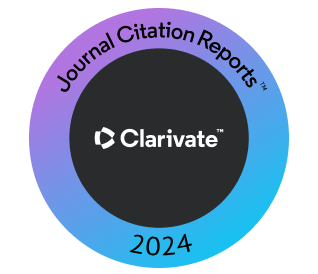Energy Optimization Using a Pump Scheduling Tool in Water Distribution Systems
DOI:
https://doi.org/10.14500/aro.10635Keywords:
Optimization, Pump scheduling, Water distribution systemsAbstract
Water distribution management system is a costly practice and with the growth of population, the needs for creating more cost-effective solutions are vital. This paper presents a tool for optimization of pump operation in water systems. The pump scheduling tool (PST) is a fully dynamic tool that can handle four different types of fixed speed pump schedule representations (on and off, time control, time-length control, and simple control [water levels in tanks]). The PST has been developed using Visual Basic programming language and has a linkage between the EPANET hydraulic solver with the GANetXL optimization algorithm. It has a user-friendly interface which allows the simulation of water systems based on (1) a hydraulic model (EPANET) input file, (2) an interactive interface which can be modified by the user, and (3) a pump operation schedule generated by the optimization algorithm. It also has the interface of dynamic results which automatically visualizes generated solutions. The capabilities of the PST have been demonstrated by application to two real case studies, Anytown water distribution system (WDS) and Richmond WDS as a real one in the United Kingdom. The results show that PST is able to generate high-quality practical solutions.
Downloads
References
Abdallah, M., and Kapelan, Z., 2017. Iterative extended lexicographic goal programming method for fast and optimal pump scheduling in water distribution networks. Journal of Water Resources Planning and Management, 143(11), p.04017066.
Alighalehbabakhani, F., Miller, C., Abkenar, S., Fracasso, P., Jin, S., and McElmurry, S., 2015. Comparative evaluation of three distinct energy optimization tools applied to real water network (Monroe). Sustainable Computing: Informatics and Systems, 8, pp.29-35.
Amirabdollahian, M., and Mokhtari, M., 2015. Optimal Design of pumped water distribution networks with storage under uncertain hydraulic constraints. Water Resources Management, 29(8), pp.2637-2653.
Bagirov, A.M., Barton, A.F., Mala-Jetmarova, H., Al Nuaimat, A., Ahmed, S.T., Sultanova, N., and Yearwood, J., 2013. An algorithm for minimization of pumping costs in water distribution systems using a novel approach to pump scheduling. Mathematical and Computer Modelling, 57(3-4), pp.873-886.
Behandish, M., and Wu, Z., 2014. Concurrent pump scheduling and storage level optimization using meta-models and evolutionary algorithms. Procedia Engineering, 70, pp.103-112.
Bene, J.G., and Hos, C.J., 2012. Finding least-cost pump schedules for reservoir filling with a variable speed pump. Journal of Water Resources Planning and Management, 138(6), pp.682-686.
Blinco, L., Simpson, A., Lambert, M., and Marchi, A., 2016. Comparison of pumping regimes for water distribution systems to minimize cost and greenhouse gases. Journal of Water Resources Planning and Management, 142, p.04016010.
Choi, Y.H., and Kim, J.H., 2019. Self-adaptive models for water distribution system design using single-/multi-objective optimization approaches. Water, 11(6), p.1293.
Costa, L., de Athayde Prata, B., Ramos, H., and de Castro, M., 2015. A branchand-bound algorithm for optimal pump scheduling in water distribution networks. Water Resources Management, 30(3), pp.1037-1052.
CWS, 2018. Richmond Network Benchmark at Centre for Water Systems. Available from: http://www.emps.exeter.ac.uk/engineering/research/cws/resources/benchmarks/operation/richmond.php. [Last accessed on 2018 Jul 07].
De Corte, A., and Sörensen, K., 2013. Optimisation of gravity-fed water distribution network design: A critical review. European Journal of Operational Research, 228(1), pp.1-10.
Farmani, R., Ingeduld, P., Savic, D., Walters, G., Svitak, Z., and Berka, J., 2007. Real-time modelling of a major water supply system. Water Management, 160(2), pp.103-108.
Fayzul, M., Pasha, K., and Lansey, K., 2014. Strategies to develop warm solutions for real-time pump scheduling for water distribution systems. Water Resources Management, 28(12), pp.3975-3987.
Fracasso, P., Barnes, F., and Costa, A., 2013. Energy cost optimization in water distribution systems using markov decision processes. In: International Green Computing Conference Proceedings.
Ghaddar, B., Naoum-Sawaya, J., Kishimoto, A., Taheri, N., and Eck, B., 2015. A Lagrangian decomposition approach for the pump scheduling problem in water networks. European Journal of Operational Research, 241(2), pp.490-501.
Giacomello, C., Kapelan, Z., and Nicolini, M., 2013. Fast hybrid optimization method for effective pump scheduling. Journal of Water Resources Planning and Management, 139(2), pp.175-183.
Hashemi, S.S., Tabesh, M., and Ataeekia, B., 2014. Ant-colony optimization of pumping schedule to minimize the energy cost using variable-speed pumps in water distribution networks. Urban Water Journal, 11(5), pp.335-347.
Housh, M., and Salomons, E., 2018. Optimal dynamic pump triggers for cost saving and robust water distribution system operations. Journal of Water Resources Planning and Management, 145(2), p.04018095.
Jung, D., Kang, D., Kang, M., and Kim, B., 2014. Real-time pump scheduling for water transmission systems: Case study. KSCE Journal of Civil Engineering, 19(7), pp.1987-1993.
Kougias, I.P., and Theodossiou, N.P., 2013. Multi-objective pump scheduling using harmony search algorithm (HAS) and polyphonic HSA. Water Resources Management, 27(5), pp.1249-1261.
Kurian, V., Chinnusamy, S., Natarajan, A., Narasimhan, S., and Narasimhan, S., 2018. Optimal operation of water distribution networks with intermediate storage facilities. Computer Aided Chemical Engineering, 119, pp.215-227.
León-Celi, C., Iglesias-Rey, P., Martínez-Solano, F., and Mora-Melia, D., 2016. A methodology for the optimization of flow rate injection to looped water distribution networks through multiple pumping stations. Water, 8(12), p.575.
López-Ibáñez, M., 2009. Operational Optimisation of Water Distribution Networks, Ph.D. Thesis. Edinburgh Napier University, United Kingdom.
López-Ibáñez, M., Prasad, T., and Paechter, B., 2008. Ant colony optimization for optimal control of pumps in water distribution networks. Journal of Water Resources Planning and Management, 134(4), pp.337-346.
López-Ibáñez, M., Prasad, T.D., and Paechter, B., 2011. Representations and evolutionary operators for the scheduling of pump operations in water distribution networks. Evolutionary Computation, 19(3), pp.429-467.
Makaremi, Y., Haghighi, A., and Ghafouri, H., 2017. Optimization of pump scheduling program in water supply systems using a self-adaptive NSGA-II; a review of theory to real application. Water Resources Management, 31(4), pp.1283-1304.
Mala-Jetmarova, H., Barton, A., and Bagirov, A., 2015. Erratum for exploration of the trade-offs between water quality and pumping costs in optimal operation of regional multiquality water distribution systems. Journal of Water Resources Planning and Management, 141(2), p.08014001.
Mala-Jetmarova, H., Sultanova, N., and Savic, D., 2017. Lost in optimisation of water distribution systems? A literature review of system operation. Environmental Modelling and Software, 93, pp.209-254.
Mala-Jetmarova, H., Sultanova, N., and Savic, D., 2018. Lost in optimisation of water distribution systems? A literature review of system design. Water, 10(3), p.307.
Marchi, A., Simpson, A., and Lambert, M., 2016. Optimization of pump operation using rule-based controls in EPANET2: New ETTAR toolkit and correction of energy computation. Journal of Water Resources Planning and Management, 142(7), p.04016012.
Matott, L., Tolson, B., and Asadzadeh, M., 2012. A benchmarking framework for simulation-based Optimization of environmental models. Environmental Modelling and Software, 35, pp.19-30.
Menke, R., Abraham, E., Parpas, P., and Stoianov, I., 2016. Exploring optimal pump scheduling in water distribution networks with branch and bound methods. Water Resources Management, 30(14), pp.5333-5349.
Naoum-Sawaya, J., Ghaddar, B., Arandia, E., and Eck, B., 2015. Simulationoptimization approaches for water pump scheduling and pipe replacement problems. European Journal of Operational Research, 246(1), pp.293-306.
Nowak, D., Krieg, H., Bortz, M., Geil, C., Knapp, A., Roclawski, H., and Böhle, M., 2018. Decision support for the design and operation of variable speed pumps in water supply systems. Water, 10, p.734.
Odan, F., Ribeiro Reis, L., and Kapelan, Z., 2015. Real-time multiobjective optimization of operation of water supply systems. Journal of Water Resources Planning and Management, 141(9), p.04015011.
PST, 2019. PST, Centre for Water Systems, University of Exeter. Available from: http://www.emps.exeter.ac.uk/engineering/research/cws/resources/pst. [Last accessed on 2019 Mar 02].
Rao, Z., and Alvarruiz, F., 2007. Use of an artificial neural network to capture the domain knowledge of a conventional hydraulic simulation model. Journal of Hydroinformatics, 9(1), pp.15-24.
Rao, Z., and Salomons, E., 2007. Development of a real-time, near-optimal control system for water-distribution networks. Journal of Hydroinformatics, 9(1), pp.25-38.
Rossman, L., 1999. The EPANET programmer’s toolkit for analysis of water distribution systems. In: Wilson, E.M., editors. 29th Annual Water Resources Planning and Management Conference No. 1-10. American Society of Civil Engineering (ASCE), Tempe, Arizona, United States.
Sadatiyan, A.S., and Miller, C., 2017. PEPSO: Reducing electricity usage and associated pollution emissions of water pumps. Water, 9(9), p.640.
Sadatiyan, A.S., and Miller, C., 2019. PEPSO: Reducing electricity usage and associated pollution emissions of water pumps. Water, 9(9), p.640.
Savić, D.A., Bicik, J., and Morley, M.S., 2013. A DSS generator for multiobjective optimisation of spreadsheet based models. Environmental Modelling and Software, 26(5), pp.551-561.
Siew, C., Tanyimboh, T., and Seyoum, A., 2016. Penalty-free multi-objective evolutionary approach to optimisation of anytown water distribution network. Water Resources Management, 30(11), pp.3671-3688.
Skworcow, P., Paluszczyszyn, D., Ulanicki, B., Rudek, R., and Belrain, T., 2014. Optimisation of pump and valve schedules in complex large-scale water distribution systems using GAMS modelling language. Procedia Engineering, 70, pp.1566-1574.
Stokes, C., Simpson, A., and Maier, H., 2015. A computational software tool for the minimization of costs and greenhouse gas emissions associated with water distribution systems. Environmental Modelling and Software, 69, pp.452-467.
Tsai, F., Katiyar, V., Toy, D., and Goff, R., 2008. Conjunctive management of large-scale pressurized water distribution and groundwater systems in semiarid area with parallel genetic algorithm. Water Resources Management, 23(8), pp.1497-1517.
Tsoukalas, I., Kossieris, P., Efstratiadis, A., and Makropoulos, C., 2016. Surrogate-enhanced evolutionary annealing simplex algorithm for effective and efficient optimization of water resources problems on a budget. Environmental Modelling and Software, 77, pp.122-142.
van Zyl, J.E., Savić, D.A., and Walters, G.A., 2004. Operational optimization of water distribution systems using a hybrid genetic algorithm. Journal of Water Resources Planning and Management, 130(2), pp.160-170.
Vieira, B., Mayerle, S., Campos, L., and Coelho, L., 2019. Optimizing drinking water distribution system operations. European Journal of Operational Research, 280(3), pp.1-34.
Walski, T., Chase, D., and Savic, D., 2003. Advance Water Distribution Modeling and Management. 1st ed. Haestad Press, New York, USA.
Walski, T.M., Brill, E.D., Gessler, J., Goulter, I.C., Jeppson, R.M., Lansey, K., Lee, H.L., Liebman, J.C., Mays, L., Morgan, D.R., and Ormsbee, L., 1987. Battle of the network models: Epilogue. Journal of Water Resources Planning and Management, 113(2), pp.191-203.
Wang, J.Y., Chang, T.P., and Chen, J.S., 2019. An enhanced genetic algorithm for bi-objective pump scheduling in water supply. Expert Systems with Applications, 36, pp.10249-10258.
Zhang, L., and Zhuan, X., 2018. Optimisation on the VFDs’ operation for pump units. Water Resources Management, 33(1), pp.355-368.
Downloads
Published
How to Cite
Issue
Section
License
Authors who choose to publish their work with Aro agree to the following terms:
-
Authors retain the copyright to their work and grant the journal the right of first publication. The work is simultaneously licensed under a Creative Commons Attribution License [CC BY-NC-SA 4.0]. This license allows others to share the work with an acknowledgement of the work's authorship and initial publication in this journal.
-
Authors have the freedom to enter into separate agreements for the non-exclusive distribution of the journal's published version of the work. This includes options such as posting it to an institutional repository or publishing it in a book, as long as proper acknowledgement is given to its initial publication in this journal.
-
Authors are encouraged to share and post their work online, including in institutional repositories or on their personal websites, both prior to and during the submission process. This practice can lead to productive exchanges and increase the visibility and citation of the published work.
By agreeing to these terms, authors acknowledge the importance of open access and the benefits it brings to the scholarly community.
Accepted 2020-06-30
Published 2020-06-30
















 ARO Journal is a scientific, peer-reviewed, periodical, and diamond OAJ that has no APC or ASC.
ARO Journal is a scientific, peer-reviewed, periodical, and diamond OAJ that has no APC or ASC.